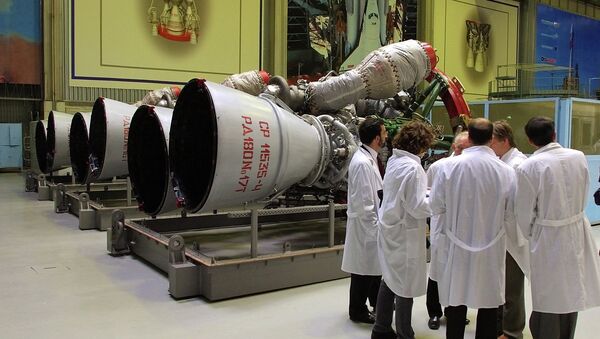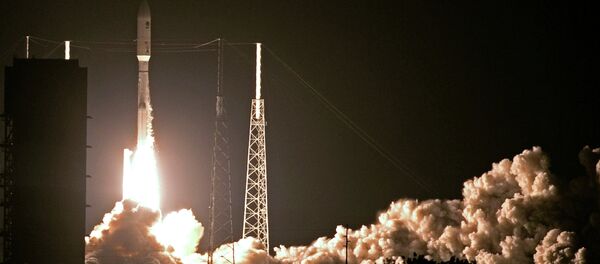"US national space transportation policy has been haunted by the ‘we hope for the best’ political decisions made since the 1980s that have continued the use of expendable launch vehicles," Spacefaring Institute President Mike Snead said.
On Tuesday, US Defense Undersecretary Frank Kendall said the Pentagon will decide soon whether to give a waiver to United Launch Alliance (ULA), a joint venture of Lockheed Martin and Boeing, which permit it to continue using Russian rocket engines.
"With a large and established industry and a captive US government market, this industry and its government supporters have walked the United States down the path of… a continued reliance of Russia for engines for the primary national launch capability," Snead explained.
Snead, an aerospace engineer, said there would be significant risk for ULA to abandon the Russian RD-180 engine.
"Engine alternatives to the RD-180 are being considered. These would require some measure of vehicle redesign with the degree of redesign depending on issues such as total thrust, lsp [lunar soil propellant], and fuel mixture ratio," Snead pointed out.
He added, the adaptations would take several years and would bring additional program risk.
Snead noted that ULA has acquired the rights and technical data to continue the RD-180 production.
"The decision to maintain acquiring the RD-180 engine from Russia, once the ability to domestically produce the engine was obtained, has been apolitical decision," he said.
Snead said the other choice for ULA would be to swap its Atlas rockets for the SpaceX Falcon 9 rockets, which comes with a risk.
Tauri Group Senior Space Analyst Phil Smith told Sputnik on Friday that the solution to replacing the RD-180 engine could be the Vulcan space engine, which members of the US Congress have been advocating.
"The full capacity of the Vulcan will not be realized until 2023, when the vehicle’s upper stage is replaced with the Advanced Cryogenic Evolved Stage (ACES)," Smith said.
When the ACES is ready, it will boost the Vulcan’s capacity above that of the US Delta IV Heavy rockets, he explained.
The Delta IV Mediums will be retired in 2018 and the Delta IV Heavy will be retired in 2023, Smith said.
On Friday, Independent Spacecraft System Engineering Consultant Paul Huter told Sputnik that ULA would not use a new space engine until the Vulcan engine completes development because of continued political differences between the United States and Russia.



